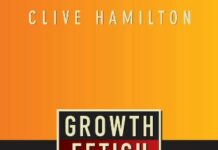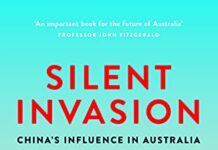
Ebook Info
- Published: 2006
- Number of pages: 240 pages
- Format: PDF
- File Size: 1.57 MB
- Authors: Clive Hamilton
Description
Anyone concerned about the level of their personal debt or frustrated by the rat race of aspiring to an affluent lifestyle will appreciate this critique of the effects of over-consumption. This analysis pulls no punches as it describes both the problem and what can be done to stop it. Analyzing the increasing rates of stress, depression, and obesity as possible effects of the consumption binge currently gripping the Western world, this report tracks how Australians overwork, the growing number of things thrown out, self-medicated drugs, and the real meaning of the word choice.
User’s Reviews
Editorial Reviews: About the Author Clive Hamilton is the author of Growth Fetish. He is the executive director of The Australia Institute, Australia’s foremost public-interest think tank. He has held visiting positions at the Australian National University, the University of Sydney, and the University of Cambridge. Richard Denniss is the deputy director of The Australia Institute. He has taught economics at the University of Newcastle and served as chief of staff to Senator Natasha Stott Despoja.
Reviews from Amazon users which were colected at the time this book was published on the website:
⭐Affluenza tracks the growth and influence of conspicuous consumption in Australia, with some side-ways glances at other nations as well. (Most notably, the US and Britain) To paraphrase the authors – “Affluenza is the buying of stuff you don’t need, with money you don’t have, to impress people that you don’t like”. The book exposes the growth and impact of “the spending disease” from about the mid 1960s to the present day. It’s a fascinating, and some times chilling read. In this slim but data packed book, you learn how mass media and marketing are targeting your household and kids, with ad campaigns, marketing strategies, and product branding to engender a sense of need and emotional attachment to material goods. Fortunately, the authors also give some practical advice as to how an average person may “down-shift” and break the cycle of dependency. Often insightful, and never preachy, this is the kind of book you buy multiple copies of and hand out to your friends.
⭐Arrive in time.
⭐Shocking realisation of how pathetic our lives become when we suffer from affluenza. It’s a book for everyone, even if you think you don’t have affluenza. Probably especially if you think you don’t have it.
⭐… and shop less. Great book with good insights and interesting analysis. It is 10 year old now though. Would be good to know what he authors think about the last 10 years. Maybe a sequel is in order.
⭐This book is a nightmare for marketing industry. I have asked my family to read it so that they may be able to stop the recent never-ending quest for ‘things’. ‘The freedom paradox’, by the same author is another good book to read.
⭐Absolutely poor. I received the parcel 3 weekes after ordering and the book was bent and crumpled. Nice work Amazon, I am a first time customer that will not be using your services again.
⭐According to virtually all statistical measures, Australians have become much, much richer in the past few decades than their parents or grandparents could have dreamed of. Who at the turn of the century, would have imagined us living in a world where we had a car each, had a large house, and hundreds of individual possessions?Yet it seems in recent decades this trend for consumer capitalism has gotten totally out of control. It now often seems even having a house, car and job isn’t enough; we have to have massive plasma television sets, several home computers, a third generation mobile phone, a whizz bang computer and games for the kids, both parents working to the hilt to pay the mortgage, expensive holidays and a million dollars in super at the end of it. We have to send our children to the most expensive private schools and universities, and money and getting things is the most important thing.This is the picture Hamilton paints of Australia, where people binge on credit, where Australians work themselves almost to death to supply an endless array of goods and services which they don’t really need, and are wasted; where about 20% of the population suffer from mental health problems related to low self esteem and stress, and where people avoid having children because each costs $250,000 to raise, and where our rampant consumption is ruining our environment as well as our health.I certainly agree many of the ideas put forward in this book are true. Australia does seem to have become a place where the ethic of ‘mateship’ and community has been replaced with the rather heartless ethics of global capitalism, which are aimed at endless economic growth and growing individual prosperity. Reforms to make the Australian economy more open to foreign competition were opened in the 1980’s by the Labour government, and ever since then in Australia the emphasis is more and more on aligning ourselves to the globalised world.I do feel though that material progress is a good thing. However, our material progress is having some negative consequences, such as rocketing house prices and crippling resource shortages, in water and other areas. Our reckless focus on ‘growth only’ is also doing great damage to our environment, globally and locally.Money is important and Australia must not go the way of Sub-Saharan Africa, being poor, overpopulated and racked by pollution and war. However I agree the time is coming when Australians will need to see there is more to life than simply the material; no amount of money or personal possessions is going to stop us from dying and suffering ill health, though wealth can delay both. We also need to be more charitable to the poor, as Australia still has some 100,000 homeless people, and we need to recognise the spiritual is an integral part of life, regardless of how much or how little we have (I am sure there is a correlation between the breakdown of religion and community in Australia and depression and other forms of mental illness).To cure ourselves of affluenza we need to focus less on affluence and more on quality of life, which unfortunately affluence can’t bring entirely on its own, without good ethical, social, spiritual and community values and wholeness and environmental sustainability. There seems little point in having a beautiful house or a brand new 4WD when the skies of your city are constantly polluted, water is running out, and garbage is piling up everywhere in the streets and elsewhere.
⭐Hamilton and Denniss present an interesting argument about Australian society: We’re addicted to consumption. They claim we’re more affluent than ever, and the “Aussie battler” image is a myth.They don’t say there aren’t poor people in Australia; it’s just that we’ve raised the bar considerably on what we consider “necessities” for life. In other words, it’s not only the rich who are getting richer, it’s also the poor and middle class getting richer but still claiming to be poor. The problem, they say, is not being consumers; it’s being addicted to being consumers.They organise their argument well into three sections: Describing the problem, outlining some of its (ill) effects; and then proposing solutions. In the first two sections, they present a wealth of statistics and data to support their position. However, the third section – where they propose solutions – is curiously weak, and they offer very little facts or research to support their recommendations.In fact, they often betray a clear left-wing bias in their proposed solutions, rather than basing them on solid research. This even spills over into mind reading, with ridiculous statements like, “Although not willing to say so, neoliberals believe …”.In other areas, they are just plain wrong. For instance, in the area of Internet censorship, where I do have some technical knowledge and experience, they say:”When presented with polling showing that 93 per cent of parents of teenagers want governments to take responsibility for the problem and require Internet service providers to filter content, both the Liberal Party and the Labor Party respond that parents should take responsibility for their children’s conduct. The financial interest of the Internet industry is put before the emotional health of Australia’s young people.”This conclusion is shamelessly stated without any supporting evidence whatsoever, and without even a basic knowledge of the facts. Australia is one of the few countries in the world that does censor the Internet, and has been doing so since legislation to that effect was passed in 1999. However, technical experts know it’s impossible for this to be an effective solution, and parental control is required. The fact that polling shows “93 per cent of parents of teenagers want governments to take responsibility” is neither here nor there – it simply indicates they don’t understand what that entails.You could argue that this is nit-picking, but for authors who present in-depth arguments for the first two-thirds of their book, their proposed solutions lack that same depth, and come across as weak and shallow.Does that taint the book as a whole? Not necessarily, but I’d suggest you read it with a skeptical mind.
⭐This book provides an excellent perspective on how influential marketing and peer pressure is. Do you need the flash car or the mansion of a house? Keeping up with the Jones’s is a major trap you should avoid. Spend more time looking after yourself and your family.
⭐Still actual though 10 years old.
⭐Don’t like his style . Very pedantic and keeps pressing his theories to the point of boredom
Keywords
Free Download Affluenza: When Too Much is Never Enough in PDF format
Affluenza: When Too Much is Never Enough PDF Free Download
Download Affluenza: When Too Much is Never Enough 2006 PDF Free
Affluenza: When Too Much is Never Enough 2006 PDF Free Download
Download Affluenza: When Too Much is Never Enough PDF
Free Download Ebook Affluenza: When Too Much is Never Enough





